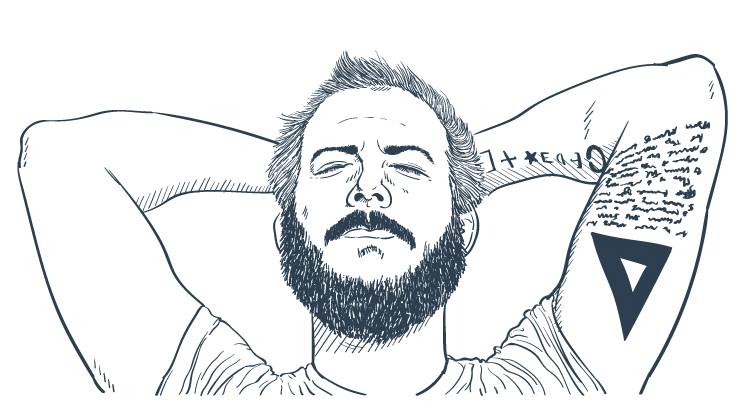Bon Iver astonishes with unexpected new sound
Album Review: 22, A Million
October 5, 2016
The pitiful woes of unwanted fame have never sounded so superb. Justin Vernon of Bon Iver has unapologetically chucked his chilly Wisconsin cabin and acoustic guitar for his stunning third album, “22, A Million.” Instead, he grapples with synthesizers, symbolism and some serious voice manipulation to create the most dizzying mixture of grit and grace.
The entire record is an intricately plotted projection of Vernon’s most troubling existential questions yet. It’s sprinkled with indecipherable symbols and connections to his previous works, as seen through his use of numbers and symbols on every track title. Although this latest creation stands alone musically, it shares the same ideological skeleton as his cathartic two previous albums.
Coming out of a five year hiatus, seemingly bored with the conventional notions of music, Vernon soaks every inch of this album with the unforeseen. Opening track “22 (OVER S∞∞N)” exhibits acute use of Auto-Tune to distort Vernon’s typically simple, forlorn vocals beyond recognition. The first half of the album rattles and clunks; it dips a toe on either side of the line separating menacing from masterful.
“715 – CRΣΣKS,” with its ardent layering and harmonizing of distorted vocals sans any instrumentals, was clearly a nod to “Woods.” The similarly acapella song caught the attention of Kanye West back in 2010, which he utilized on “My Beautiful Dark Twisted Fantasy.”
Halfway through the 10 track album, the emotionally upheaving sounds taper off, easing into the smoother sentiment more frequently associated with Bon Iver. “29 #Strafford APTS,” spurs familiarity with the scattering of guitar, banjo and hazy saxophones.
Bon Iver’s previous album, with the majority of its mellow, savory tracks named after geographical locations, allowed Vernon to build a habitat for his memories and inquisitions. With “22, A Million,” he disperses these same dispositions into the void, allowing them to expand and morph without restriction.
Maybe none of us even have the right or intellectual capability to try and form a unified interpretation of this unrelated jumble of symbols and hidden meanings; which perhaps is why it’s so intoxicatingly beautiful. “22, A Million” serves as a final resting place of two decades of searching for self-understanding like a religion; and coming to the inner-resolution of potentially never finding that understanding. The paradoxical qualities that seem to encompass everything about Justin Vernon have been thrown under the microscope for the world to see. I can’t think of any reason more pure to propel one further into the realm of artistic acclaim.


















